MercoPress. South Atlantic News Agency
Tag: Inflation
-
Thursday, April 14th 2011 - 19:43 UTC
Venezuela and Argentina have the highest inflation rates in South America

Venezuela and Argentina recorded the highest rates of inflation in South America during the first quarter of 2011 according to the latest data available.
-
Thursday, April 7th 2011 - 18:05 UTC
In spite of latest measures, Brazil’s ‘currency war’ looks set to rumble on

If recent evidence is anything to go by, Brazil’s latest effort to stem the rise in the Real is unlikely to have a lasting impact on the markets, according to Capital Economics.
-
Wednesday, April 6th 2011 - 06:32 UTC
Venezuela admits an annual inflation of 27.4% in the last twelve months
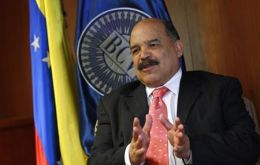
Venezuela's nationwide consumer price index (NCPI), prepared by the Central Bank of Venezuela (BCV) and the National Statistics Institute (INE), showed a 1.4% increase in March 2011 compared to February 2011.
-
Wednesday, April 6th 2011 - 01:39 UTC
Uruguay’s March inflation soars 1.42% and 3.6% in the first quarter
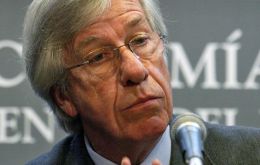
Uruguay consumer prices soared 1.42% in March, reaching 8.17% in the last twelve months and 3.6% in the first quarter, which is dangerously close to the twelve month government target of 3% to 7%, which theoretically should go down to 4% to 6% next June.
-
Saturday, March 26th 2011 - 10:41 UTC
Uruguay admits concern over inflation raises benchmark interest to 7.5%
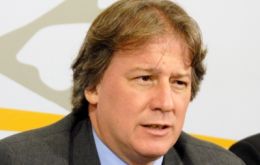
Uruguay's central bank this week surprised local economists and raised its benchmark interest rate 100 base points, one percentage point to 7.5%, in an attempt to help combat accelerating inflation which is beyond the government's target range.
-
Saturday, March 26th 2011 - 10:38 UTC
Billionaire Buffet advice: avoid long term fixed-income investment in US dollars
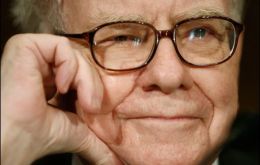
Billionaire Warren Buffet who urged United States in 2009 to guard against inflation, said investors should avoid long-term fixed-income bets in US dollars because the currency’s purchasing power will decline.
-
Saturday, March 26th 2011 - 08:57 UTC
Brazil expected to raise benchmark interest rate as inflation “worsens”
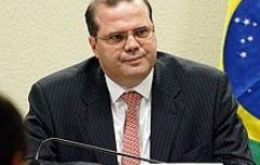
Brazilian Central bank President Alexandre Tombini admitted inflation forecasts may “worsen”. Consumer prices in the 12 months through mid-March rose 6.13%, the biggest jump in more than two years.
-
Wednesday, March 23rd 2011 - 19:47 UTC
Argentina forecasted to expand 6.8% in electoral year with 25% inflation

Goldman Sachs raised its forecast for Argentina’s economic growth in 2011 after the economy expanded last year at the fastest pace since 2005. Alberto Ramos Goldman Sachs economist raised the GDP expansion estimate to 6.8% from a previous 5.6%, according to an e-mail statement.
-
Tuesday, March 22nd 2011 - 08:10 UTC
In twelve Argentine provinces inflation is two times and a half the official index
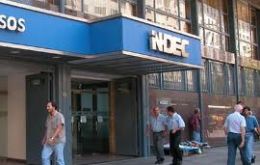
Several Argentine provinces mistrustful of government statistics, particularly inflation have mounted their own offices which show that consumer prices in the last twelve months have soared on average 27.5%, which is almost two and a half times the official index applicable to Buenos Aires City and Buenos Aires province
-
Saturday, March 19th 2011 - 07:22 UTC
Inflation alarm-bells in Uruguay as consumer prices rise sharply in Jan-Feb

Uruguay's central bank must act swiftly after a surge in consumer prices during the first two months of the year or the economy could suffer “serious problems,” a recognized research company has warned.
